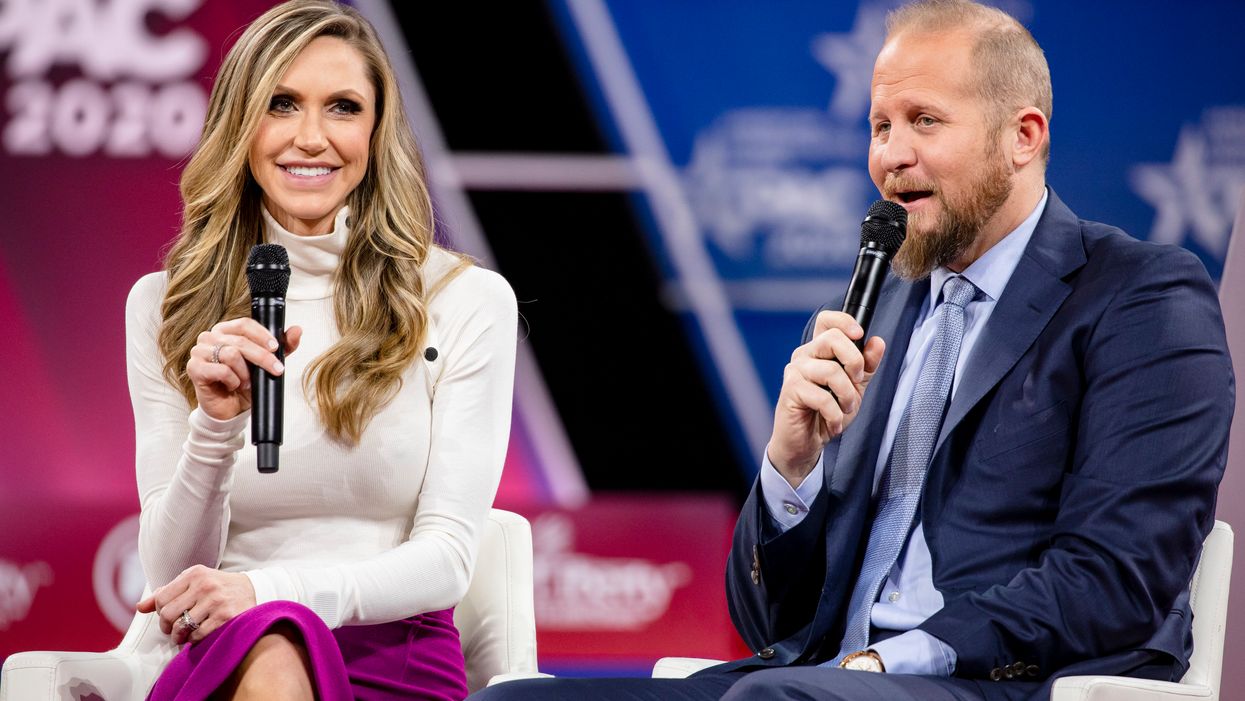The Trump campaign is vowing to fight a complaint from a watchdog group alleging an unusually bold and broad violation of campaign finance law. But it might not have to fight too hard, because the matter is now before an essentially shuttered Federal Election Commission.
The allegation formally lodged Tuesday by the Campaign Legal Center, which advocates for tighter money-in-politics rules, is that President Trump's reelection operation paid almost $170 million to companies affiliated with one-time campaign manager Brad Parscale and other campaign operatives — but did not disclose the intended recipients of the money, as the law requires.
While efforts to obfuscate campaign spending details are not uncommon, as candidates from both parties clamor for every tactical advantage, what the CLC described in its complaint as "laundering the funds" by Trump's team seems unprecedented in size and scope.
The CLC is still pursuing, for example, its similar complaint filed with the FEC four years ago, alleging the Hillary Clinton campaign paid a law firm knowing the real recipient was going to be the opposition research firm Fusion GPS, which was investigating Trump's ties to Russia. The amount at issue, however, was less than $1 million.
That complaint has moved at a snail's pace mainly because the six-member FEC, the sole regulator of money in national politics, was in total partisan deadlock for almost a decade ending last summer — at which point the agency was essentially shut down because its membership shrank to three, one shy of a quorum. It reopened for a month this summer after the Senate confirmed a Trump nominee, Trey Trainor, then fell into limbo again as soon as Republican commissioner Caroline Hunter resigned last month.
Even under normal circumstances, it would take the FEC many months to resolve such allegations — and that's even if there were four votes to do something.
With Senate Democrats delaying a vote on her proposed replacement, deregulatory campaign finance advocate Allen Dickerson, the only thing likely to happen before the election is that agency bureaucrats formally accept the Trump campaign's response in the next month.
The CLC could bypass the agency altogether and turn the complaint into a federal lawsuit if there's no movement at the FEC for four months — but that would be several weeks after the election. By that point the complaint might be pointless as a practical matter, if the president is defeated, but campaign finance advocates may want to press it nonetheless as a matter of precedent-setting principle.
Federal law requires candidates for president and Congress to disclose all payments above $200, including to subcontractors closely tied to the campaign. The 82-page complaint says the Trump campaign and the Trump Make America Great Again Committee unlawfully evaded these rules by funneling money through Parscale Strategy but mainly through another firm over which he has significant influence, American Made Media Consultants.
The CLC complaint says some of the money was to keep secret some payments to Parscale, who was replaced as campaign manager this month by Bill Stepian, while other money was quickly passed along for vendors and advisors including the maker of the campaign app, Phunware, as well as both Lara Trump, the wife of Eric Trump, and Kimberly Guilfoyle, the girlfriend of Donald Trump Jr.
The Trump "scheme flagrantly violates the transparency requirements mandated by federal law, and it leaves the public in the dark about where the campaign funds are actually going," the watchdog group's president, former FEC Chairman Trevor Potter, said Wednesday. "And this secrecy could potentially disguise other campaign finance violations, but we don't know, because the campaign isn't disclosing these routed payments.".
Spokesman Tim Murtagh said the campaign had done nothing wrong and so would contest the allegations vigorously. "The campaign complies with all campaign finance laws and FEC regulations," he said.
The last time a campaign was sanctioned for concealing payments appears to be eight years ago, when Rep. Michele Bachmann of Minnesota was fined for paying an Iowa Republican official for his presidential endorsement but masked the money.




















